Achieving radiant and youthful-looking skin is a goal shared by many women, and one of the fundamental keys to unlocking this beauty secret lies in the power of hydration. Water plays a vital role in maintaining the health, elasticity, and overall appearance of our skin.
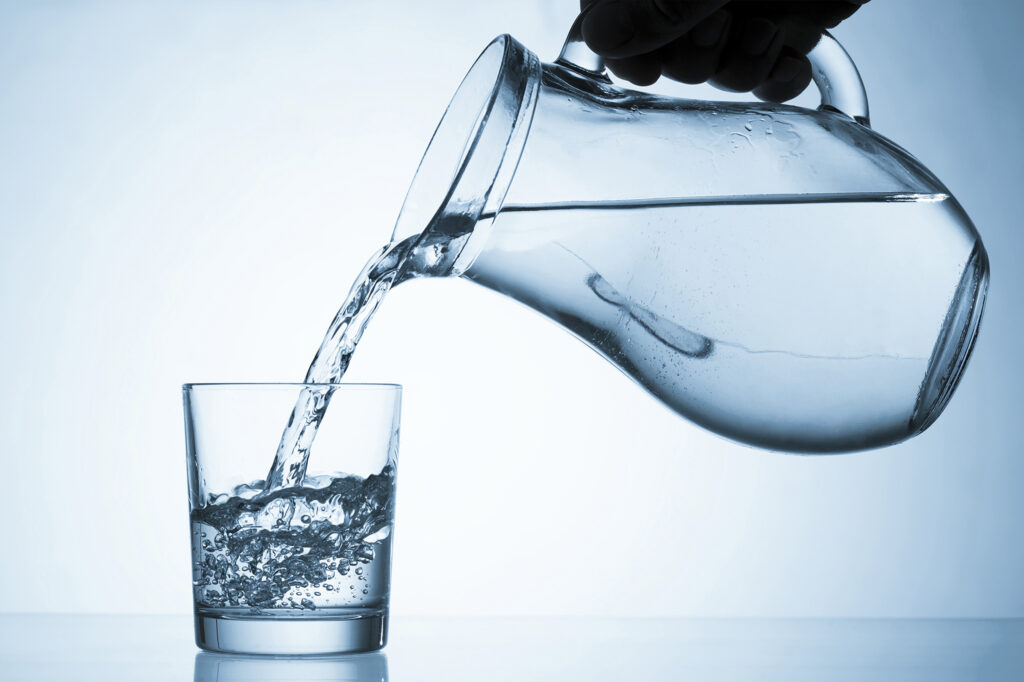
In this article, we will explore the importance of hydration for your skin, debunk common myths, provide practical tips on how to stay hydrated throughout the day, and answer frequently asked questions. So, grab a glass of water, sit back, and let’s dive into the world of skin hydration!
The Importance of Hydration for Skin Health
Our skin is the largest organ of our body, and it acts as a protective barrier against external factors such as pollutants and UV radiation. It is composed of cells that require proper hydration to function optimally.
When we are adequately hydrated, our skin retains moisture, resulting in a plump and supple complexion. However, when we neglect our hydration needs, our skin can become dry, dull, and more prone to premature aging.
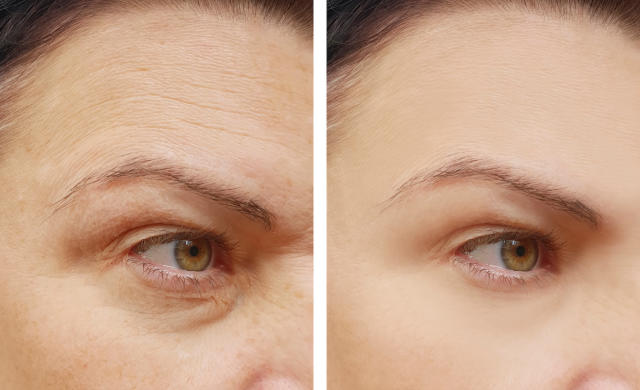
The outermost layer of our skin, called the stratum corneum, is primarily composed of water, which helps maintain its barrier function. When this layer lacks moisture, it becomes compromised, leading to transepidermal water loss and leaving the skin vulnerable to environmental damage.
Proper hydration also promotes the production of collagen and elastin, proteins responsible for the skin’s firmness and elasticity. With adequate hydration, your skin can bounce back, appearing smoother and more youthful.
Debunking Hydration Myths
There are many misconceptions surrounding hydration and its impact on our skin. Let’s debunk some of the common myths to ensure you have accurate information to achieve your skin goals:
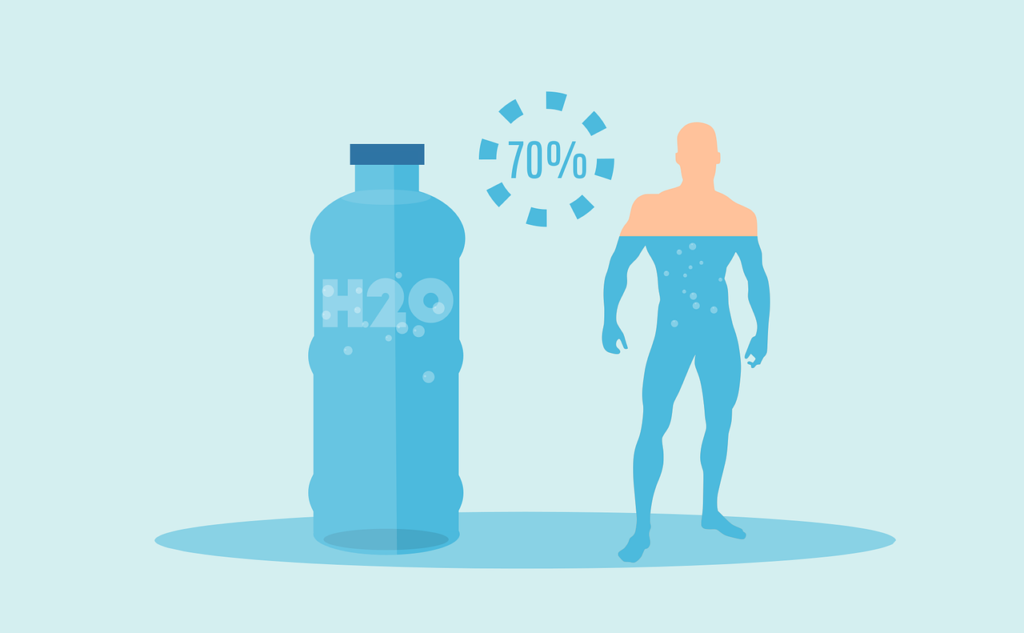
- Myth 1: Drinking more water eliminates wrinkles instantly. While hydration is crucial for maintaining healthy skin, it won’t magically erase existing wrinkles overnight. Drinking water helps to plump the skin and improve its overall appearance over time, but it’s important to combine it with other skincare practices, such as using moisturizers and protecting your skin from sun damage.
- Myth 2: You only need to drink water when you feel thirsty. Thirst is a late indicator of dehydration, so relying solely on thirst as a signal to drink water may not be sufficient. It’s recommended to drink water consistently throughout the day, even when you don’t feel thirsty, to maintain optimal hydration levels.
- Myth 3: Moisturizers can replace the need for internal hydration. While moisturizers play a vital role in hydrating the outer layers of the skin, they cannot substitute the benefits of internal hydration. Drinking water ensures that moisture is delivered to the deeper layers of the skin, promoting overall hydration from within.
By dispelling these myths, we can focus on practical and effective strategies for maintaining healthy, hydrated skin.
Recommended Daily Water Intake
Water is essential for our overall well-being, and maintaining adequate hydration goes beyond just quenching our thirst. On average, it is recommended that women drink about 2.7 liters (91 ounces) of water per day.
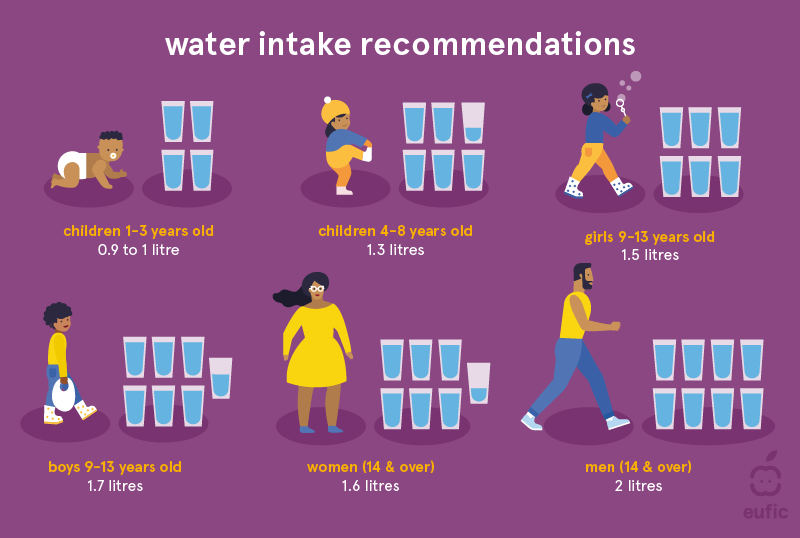
However, individual needs may vary based on factors such as physical activity, climate, and overall health. A good indicator of hydration is the color of your urine; if it’s pale yellow, you’re on the right track!
Drinking enough water throughout the day is especially important for women as they tend to have a higher body water percentage compared to men. Additionally, factors such as pregnancy, breastfeeding, and menopause can increase the body’s water requirements. Staying hydrated not only benefits your skin but also supports digestion, circulation, and overall vitality.
Incorporating Hydrating Foods into Your Diet
Hydrating your skin doesn’t stop at drinking water; you can also nourish your body with water-rich foods. Fruits and vegetables with high water content provide an additional source of hydration, along with a myriad of essential nutrients.
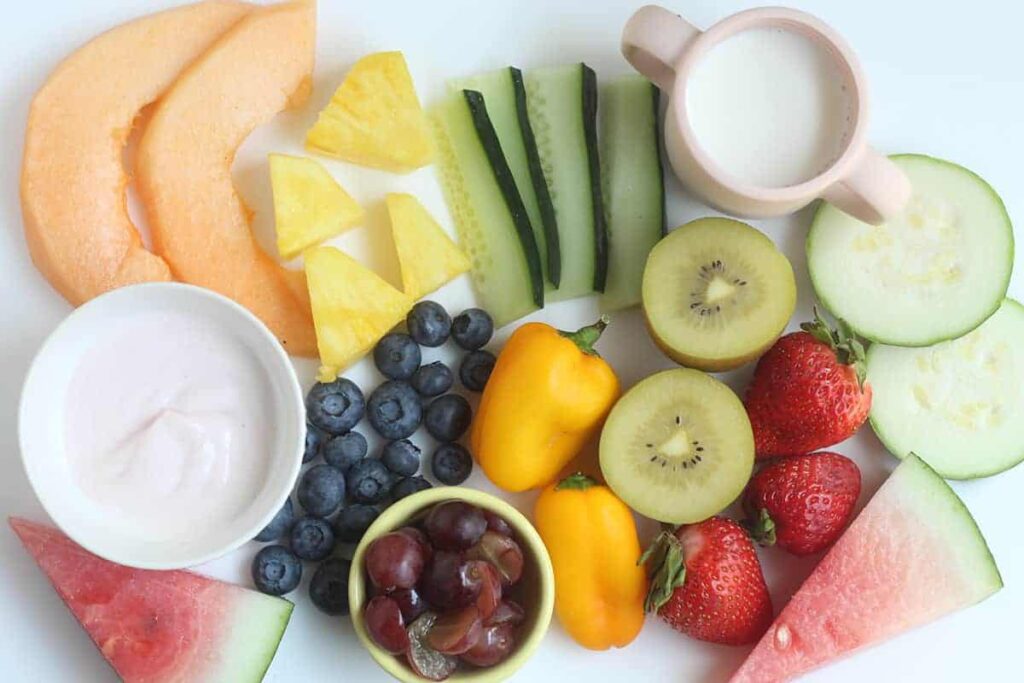
Including hydrating foods in your diet not only helps quench your thirst but also contributes to a healthy and radiant complexion.
- Cucumbers: Composed of 96% water, cucumbers are a hydrating and refreshing addition to your meals. Enjoy them sliced in salads, blended into smoothies, or as a crunchy snack.
- Watermelon: As its name suggests, watermelon is packed with water and offers a sweet and hydrating treat. Slice it up or blend it into a refreshing summer drink.
- Oranges: Bursting with vitamin C and hydration, oranges are a citrusy delight that can be enjoyed on their own or squeezed into fresh juice.
- Strawberries: These vibrant berries are not only delicious but also contain high water content. Snack on them, add them to your morning cereal, or blend them into a refreshing smoothie.
- Leafy Greens: Spinach, lettuce, and other leafy greens are excellent sources of hydration and provide an array of vitamins and minerals. Incorporate them into salads, stir-fries, or green smoothies.
By incorporating these water-rich foods into your daily diet, you can hydrate your skin and support its overall health and vitality.
Impact of Dehydration on Skin Aging
Dehydration can accelerate the aging process, leading to the formation of fine lines, wrinkles, and sagging skin. When our skin lacks adequate moisture, it becomes less resilient and loses its elasticity.
As a result, signs of aging become more pronounced. By prioritizing hydration, you can help combat the effects of dehydration and maintain a youthful appearance for longer. Remember, prevention is key!
When we’re dehydrated, our skin’s natural protective mechanisms are compromised. It becomes more susceptible to external factors such as pollution, UV radiation, and harsh weather conditions. These factors can cause oxidative stress and damage the collagen and elastin fibers in our skin, leading to the development of wrinkles and a dull complexion. By keeping our skin well-hydrated, we fortify its natural defenses and minimize the impact of these aging factors.
Practical Tips for Staying Adequately Hydrated Throughout the Day
Maintaining optimal hydration levels can be a challenge in our busy lives. Here are some practical tips to help you stay hydrated and keep your skin glowing:
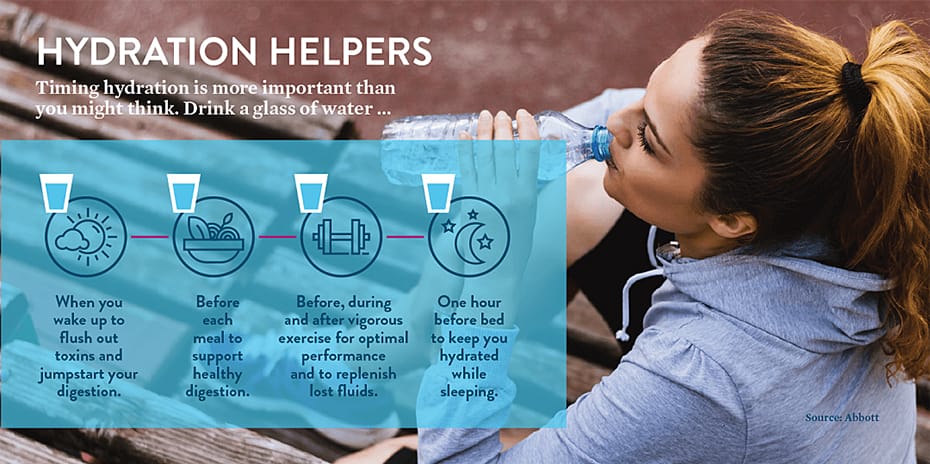
- Carry a reusable water bottle with you wherever you go as a reminder to drink water regularly. Opt for BPA-free bottles that are easy to carry and clean.
- Set reminders on your phone or use apps that track your water intake. These gentle nudges can help you establish a hydration routine.
- Flavor your water with slices of lemon, cucumber, or berries for a refreshing twist. Infusing your water with natural flavors can make it more enjoyable and encourage you to drink more.
- Incorporate hydrating beverages like herbal teas and coconut water into your routine. These alternatives provide hydration along with additional health benefits.
- Use a humidifier in dry environments to add moisture to the air and your skin. This is especially helpful during colder months or when spending long hours in air-conditioned spaces.
- Avoid excessive caffeine and alcohol consumption, as they can contribute to dehydration. If you enjoy these beverages, remember to balance them with extra water intake.
- Eat hydrating snacks such as watermelon, cucumber slices, and celery sticks throughout the day. These snack options not only provide hydration but also add a satisfying crunch to your diet.
By implementing these simple yet effective strategies, you can make hydration a priority and enjoy the benefits of radiant and healthy-looking skin.
Frequently Asked Questions
Does drinking more water cure acne?
While staying hydrated is important for overall skin health, drinking more water alone may not cure acne. Acne is a complex condition influenced by various factors, including hormones, genetics, and skincare habits. However, drinking water can help maintain skin moisture, promote a healthy complexion, and support the body’s natural detoxification processes.
Can I rely solely on moisturizers for hydration?
Moisturizers are essential for hydrating the outer layers of the skin, but they work best when combined with internal hydration. Drinking an adequate amount of water ensures that moisture is delivered to the deeper layers of the skin, improving overall hydration and promoting a healthy glow.
Can dehydration cause dark circles under the eyes?
Yes, dehydration can contribute to the formation of dark circles under the eyes. When the body is dehydrated, blood vessels beneath the skin may dilate, resulting in a darker appearance. Proper hydration can help reduce the appearance of dark circles and promote a more refreshed look.
How does hydration affect oily skin?
Hydration is important for all skin types, including oily skin. When the skin is dehydrated, it can produce more oil as a compensatory mechanism, leading to an oily or greasy complexion. By maintaining proper hydration, you can help balance oil production and keep your skin looking more matte and balanced.
Should I drink more water during exercise?
Absolutely! During exercise, your body loses water through sweat, and it’s crucial to replenish those lost fluids. Aim to drink water before, during, and after your workout to maintain hydration levels and support optimal performance.
Is it possible to overhydrate?
While rare, overhydration, also known as hyponatremia, can occur when you drink excessive amounts of water without adequate electrolyte balance. It’s important to maintain a balanced approach to hydration and listen to your body’s signals. If you have concerns about overhydration, consult with a healthcare professional.
Can dehydration make my skin sensitive?
Yes, dehydration can lead to increased skin sensitivity. When the skin lacks moisture, its protective barrier becomes compromised, allowing irritants to penetrate more easily. This can result in redness, itching, and a heightened sensitivity to skincare products or environmental factors.
Does drinking water help reduce cellulite?
While staying hydrated won’t eliminate cellulite entirely, it can help improve the appearance of cellulite by promoting overall skin health and elasticity. Drinking water supports collagen production and helps maintain the skin’s natural firmness and tone.
How long does it take to see improvements in my skin after increasing water intake?
The timeline for seeing improvements in your skin after increasing water intake can vary depending on various factors such as your current hydration levels, lifestyle habits, and overall skin health. However, with consistent hydration, you may start noticing positive changes in your skin’s appearance within a few weeks.
Are there any foods that dehydrate the skin?
Some foods and beverages, such as those high in caffeine or sodium, can contribute to dehydration when consumed in excess. Caffeinated drinks like coffee and certain teas may have a mild diuretic effect, causing increased urine production. Similarly, foods high in salt can lead to water retention in the body. It’s important to balance your intake of these items with adequate water consumption to maintain proper hydration.
Remember, your skin is a reflection of your inner health, and by nourishing it with hydration, you are investing in your natural beauty. Make water your skin’s best friend, and let your radiance shine from within!
Trivia Fact: Did you know that our bodies are made up of about 60% water?